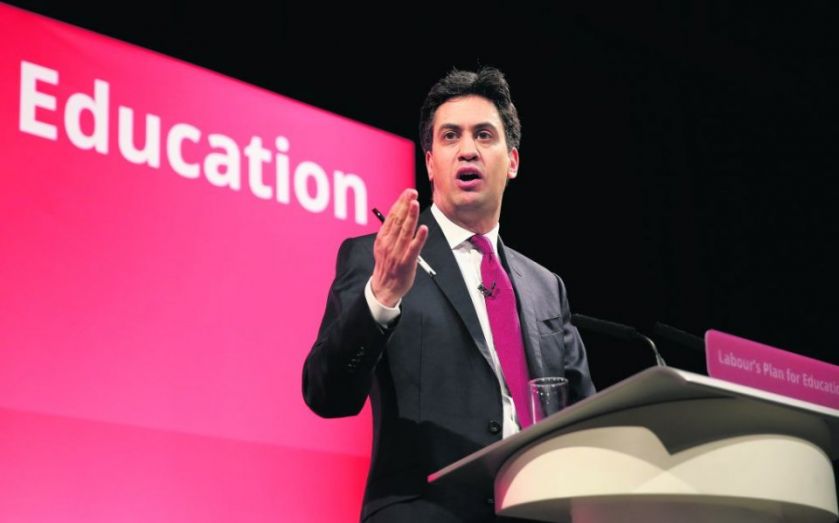Labour promises to keep corporation taxes low in bid to shed anti-business image

Labour today promised to keep corporate taxes competitive should the party win the general election, but to shift the focus to small firms and workers.
In a bid to counter the party’s anti-business image, Ed Miliband pledged to implement an industrial policy which he said would help firms of all sizes, as well as lower-paid workers.
Business groups the Confederation of British Industry and EEF cautiously welcomed the measures, but warned Labour not to lose the competitiveness gained over the past five years.
Under Labour the upcoming cut to corporation tax will not take place. Instead, the party said it will cut business rates for small firms.
However, the party is matching George Osborne’s promise to keep corporation taxes the most competitive in the G7 group of major economies.
Miliband is also promising to improve workers’ skills with more apprenticeships, hoping to boost productivity and so increase wages.
“Here is our better plan: a modern industrial strategy for Britain’s businesses and Britain’s working families to succeed together; a plan for every sector, every firm, everybody to raise productivity, make bigger profits and create the inclusive prosperity for a new era; a route-map for turning the fortunes of working people and of our country,” Miliband will say in a speech at Jaguar Land Rover in Birmingham.
The CBI agreed with the intention of the speech, but said the government should not get in the way of firms.
“Boosting productivity is a job for business not for government but government can help us better understand the causes of low productivity,” said Katja Hall. “And government also needs to listen to and work with business to address barriers to improving productivity, such as the planning system holding back investment.”
EEF welcomed Labour’s promise to help give firms certainty on long-term investment, but said the party should also keep taxes low: “Labour should also not seek to unpick what has worked well in the last five years, from supportive business taxes to strategies which have helped boost key sectors of the economy,” said chief Terry Scuoler.